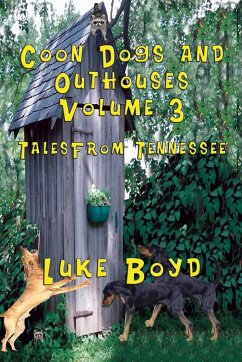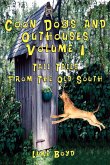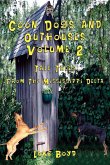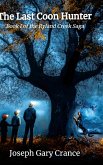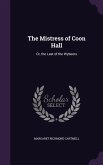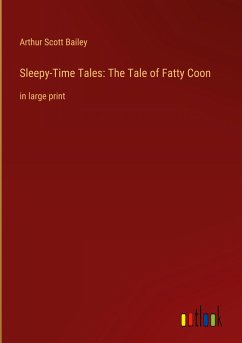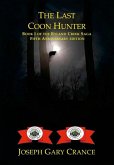Remember the stories your grandfather use to tell you about way back when? Remember laughing out loud as the stories got deeper? If you like to LOL than this really is a book for you. Some observations on life in general and people in particular as seen through a collection of newspaper columns, presenting skewed, off-beat, semi-serious, and sometimes amusing views of the world. Dr. Luke Boyd is a writer for the Williamson Herald and Mature Lifestyles magazine. Dr. Boyd retired after serving for 19 years as Principal of Battle Ground Academy, a private, college preparatory school in Franklin, Tennessee. Coon Dogs and Outhouses Volume 3 Tales From Tennessee is the 2013 Grand Prize Winner for Humor at the "Books Without Publishers" writing contest. It all started back in 2004. I had grown tired of reading stories in our local newspaper whose writers had problems putting sentences together correctly. An especial egregious error was the misplacement of modifiers and modifying phrases. It was common to read a caption under a picture that "Joe Quick, star running back for the Pinecrest Panthers, signs a letter of intent of play football in the coming year for the University of Tennessee on Thursday." This, of course, would make him a very specialized player as he would only be playing in games scheduled for that one day of the week. Figuring these errors to be the property of the sports writers, I held my tongue until the curse of the roving modifiers began to migrate to other sections of the paper. Critical mass was reached when a local fellow was killed in a motorcycle wreck on Concord Road. A misplaced modifying phrase made it appear that the accident had occurred at Centennial Hospital. No longer able to restrain myself, I wrote a letter to the editor, pointing out these reoccurring errors and asking that the paper try to present a correct and positive writing example for our youth. My letter was not printed. I had known the editor for a number of years and expected some response but got none. A few weeks later I ran into the editor at a Christmas open house. Her first words to me were, "You can come down to the office and read copy any time you want to." My response was that I didn't have time to be the paper's copy editor and that the paper ought to have someone to fill that role. Next she asked, "Do you think you can do any better." "I know I can," I replied. "Well, write me a couple of columns and let's see," she said as she obviously threw down a challenge. I did so and soon after came the offer for me to write a regular column. I almost panicked. What if after two or three months I found that I had nothing left to say? Crashing and burning in full view of a lot of people who knew me would be an inglorious end. But I decided to give it a whirl. That was over nine years ago and so far I've written about 250 columns and still have a writing folder full of ideas and topics that (I think) need commenting on. And in 2007 the editor of Mature Lifestyles, a monthly magazine for seniors, read some of my stuff and asked me to do a column for their publication. And through it all I've managed to keep my modifiers in the correct places.
Bitte wählen Sie Ihr Anliegen aus.
Rechnungen
Retourenschein anfordern
Bestellstatus
Storno

